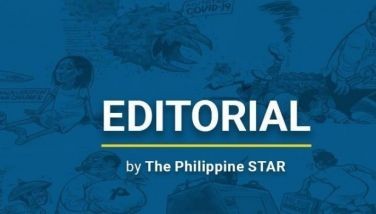25th anniversary of the enthronement of His Majesty King Mohammed VI
On the 30th of July, the Kingdom of Morocco celebrated the 25th Anniversary of the Enthronement of His Majesty King Mohammed VI, the 23rd King of the Moroccan Alaouite Dynasty. This momentous occasion symbolizes the enduring attachment of Moroccans to the Throne and their unwavering loyalty to the Sovereign.
Since His Majesty ascended to the Throne in 1999, the Kingdom has witnessed many significant achievements. Under his leadership, Morocco has experienced a dynamic growth and profound change through the initiation of several political, economic and social reforms, as well as the launch of important projects and initiatives that contribute to the country’s prosperity and development. Some of the most important achievements are:
• The Moroccan family code (Moudwana), adopted in 2004, established the normative foundations of the family sphere in order to promote gender equality and empower women in society. It is undergoing changes since 2023, to grant women more rights and enhancing their legal status in the Moroccan society.
• The establishment of the Equity and Reconciliation Commission in 2004, to address and reconcile past human rights abuses, provide reparations to victims and promote national reconciliation underscoring Morocco’s commitment to justice and human rights.
• The adoption of the new Constitution in 2011, which serves as a milestone in the construction of modern Morocco, is one of the most important pillars for the strengthening of democracy and the protection of freedoms. It enshrined the respect, protection of human and civil rights and led to the establishment of the National Human Rights Council (CNDH), an autonomous body mandated to investigate and monitor human rights in Morocco.
• The launch of the National Human Development Initiative (INDH), which aims to mobilize Morocco’s institutional and financial resources to improve the living conditions among Moroccans and raise national social indicators.
Other transformative projects have been launched under the Sovereign’s leadership, such as Tangier Mediterranean Port, the largest logistical and industrial port in the continent and the Mediterranean region, connecting the country to 185 ports and 80 countries; the Ouarzazate Solar Power Station, among the biggest worldwide; Boraq, the first and only high-speed train in Africa connecting Tangier and Casablanca.
Furthermore, significant projects such as airports, seaports, railways and highway networks greatly contributed to the growth of the Moroccan economy by encouraging more foreign direct investments, attracting important capital flows, reducing unemployment and developing skills.
To stimulate economic growth, the Kingdom has launched several sectoral strategies, such as the “Green Morocco Plan,” aiming to boost agricultural production; “The 2030 Strategy for Renewable Energy” in which Morocco aims to increase the share of renewables in its total power capacity to 52 percent by 2030. In the automotive sector, the country has become an auto-hub and has set an ambitious target, reaching a production capacity of one million vehicles by 2025.
Morocco attracts a significant number of tourists annually, thanks to its rich geography including landscapes, mountains, desert and coastline that makes it a must-see destination. The country is aiming to welcome 26 million tourists by 2030 (14.5 million in 2023), coinciding with its co-hosting of the FIFA World Cup, alongside neighbouring countries Spain and Portugal.
The Kingdom is one of the most stable countries in the region, offering unlimited opportunities for investment. Over the past years, it has advanced in liberalizing its economy and developing its business environment by adopting a set of reforms to strengthen the business law system, modernize financial markets, simplify administrative procedures, provide legal protection for investors and grant them attractive incentives.
Morocco has, for several centuries, represented a model of coexistence and convergence of civilizations, cultures and religions. It is a country of tolerance, diversity and openness. It is among the first countries to establish international mechanisms for cultural dialogue and to take measures to combat terrorism, extremism and fanaticism.
Internationally, Morocco’s proactive diplomacy under the King’s visionary leadership has strengthened its relationships worldwide, even with geographically distant countries, emphasizing the south-south cooperation, which is a strategic lever of its foreign policy.
Morocco and the Philippines are sharing a long history of friendship, cooperation and mutual respect, and will celebrate next year the 50th anniversary of the establishment of diplomatic relations. The ties between the two countries have grown stronger, highlighted by significant milestones such as the re-opening of the Philippine embassy in Rabat that confirms Manila’s commitment to deepening its relationship with Morocco. The diplomatic presence in each other’s capitals is a clear indication of the mutual dedication to enhance bilateral ties.
The cooperation between Morocco and the Philippines extends beyond bilateral interactions and into the international arena, where both countries share common views on many global issues. The two countries have demonstrated a high level of coordination within the United Nations and other international organizations.
As we approach the 50th anniversary, Morocco is deeply committed to continuing its cooperation and distinguished partnership with the Republic of the Philippines. By working together, we aim to achieve our common development vision and elevate our relations to new heights.
May Morocco-Philippines friendship continue to flourish. Mabuhay!
* * *
Mohammed Rida El Fassi is the Ambassador of the Kingdom of Morocco to the Philippines.
- Latest
- Trending

























